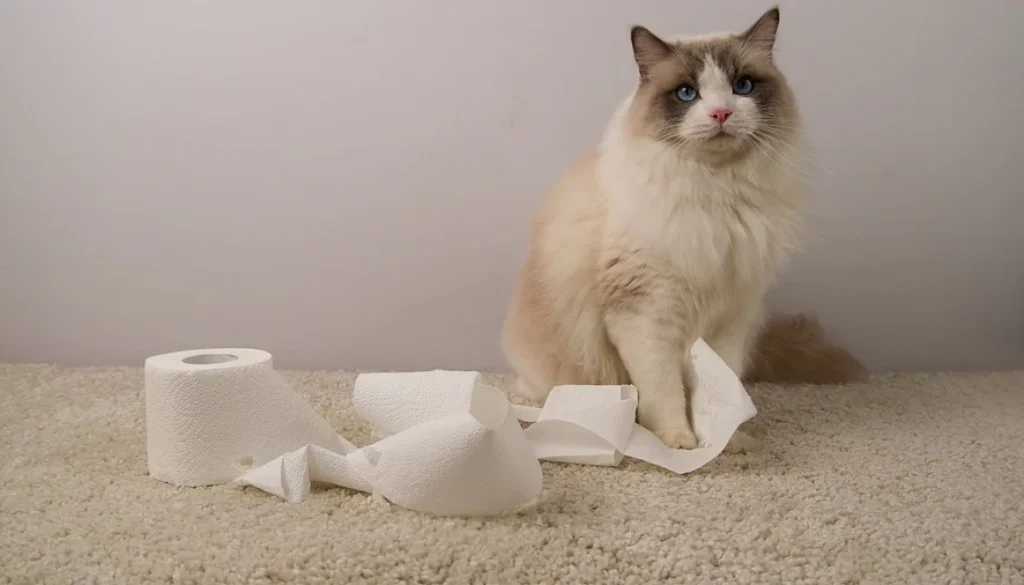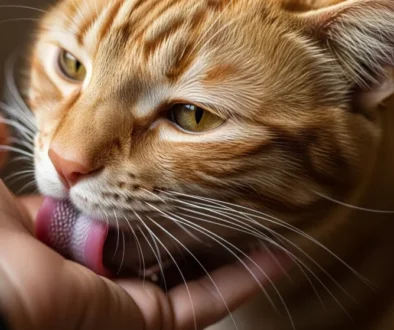Cat Diarrhoea: Vet Advice on Causes, Care and When to Worry
If you’re a cat owner, you’ve likely encountered a messy litter box at least once. Cat diarrhoea is one of the most common issues vets are asked about and for good reason. While it’s often mild and resolves on its own, sometimes diarrhoea in cats can indicate a serious underlying problem.
In this article, we’ll walk you through everything you need to know: what causes cat diarrhoea, how to care for your feline friend at home, and when it’s time to call the vet.
Table of Content
What is Cat Diarrhoea?
At its simplest, diarrhoea is the passage of loose, watery, or unusually frequent stools. But in cats, not all diarrhoea is created equal.
Keep an eye out for:
- Stools that are very soft or liquid.
- More frequent trips to the litter box.
- Accidents outside the litter box.
- Changes in colour (black, bloody, or very pale stools).
An occasional loose stool may not be cause for alarm, but ongoing diarrhoea especially when accompanied by other symptoms can quickly lead to dehydration and more serious issues.
Common Causes of Diarrhoea in Cats
Cat diarrhoea can be triggered by a variety of factors. Here are the most common culprits:
1. Dietary Indiscretions
Cats have sensitive digestive systems. A sudden switch in their food, a bite of human leftovers, or nibbling on spoiled food can upset their stomach and cause diarrhoea. Even well-meaning owners switching to a higher-quality diet too quickly can trigger loose stools.
2. Infections & Parasites
Both young kittens and adult cats can suffer from intestinal parasites like worms, giardia, or coccidia. Viral or bacterial infections such as feline panleukopenia or salmonella can also result in diarrhoea.
3. Stress & Anxiety
Cats are creatures of habit, and stressful changes like moving house, introducing a new pet, or even loud noises can lead to an upset stomach. This is often referred to as stress-induced diarrhoea.
4. Underlying Medical Conditions
Chronic diarrhoea in cats can sometimes signal more serious illnesses, such as:
- Inflammatory bowel disease (IBD)
- Pancreatitis
- Hyperthyroidism
- Kidney or liver disease
- Certain cancers
If your cat has recurring or persistent diarrhoea, a veterinary check-up is essential.
When Should You Worry?
Not all diarrhoea warrants a vet visit, but there are definite red flags to watch for. Seek veterinary care immediately if:
1. There’s blood or black tarry stools.
2. Your cat seems lethargic or is hiding excessively.
3. Vomiting accompanies the diarrhoea.
4. Your cat refuses to eat or drink.
5. Diarrhoea lasts more than 24–48 hours, or recurs frequently.
6. Signs of dehydration appear (sunken eyes, dry gums, skin doesn’t bounce back when pinched).
Remember: kittens, elderly cats, and those with pre-existing conditions can become dangerously dehydrated very quickly.

How to Care for Your Cat at Home
Offer a Bland Diet
If your cat is experiencing digestive upset, it’s often helpful to let their stomach rest with a brief fasting period—typically no more than 12 hours. Be sure to check with your vet before withholding food. After the fast, introduce a bland, easily digestible meal in small portions. A common home-cooked option is plain boiled chicken breast (no skin, bones, or seasoning) paired with plain white rice. Alternatively, your vet may recommend a specially formulated gastrointestinal diet. Feed small, frequent meals to avoid overwhelming the digestive system.
Keep Your Cat Hydrated
Hydration is essential, especially during episodes of vomiting or diarrhea. Always provide fresh, clean water, and encourage drinking by placing multiple bowls around the home or using a cat water fountain. In some cases, your vet might suggest adding a pet-safe electrolyte solution to help replenish lost fluids and maintain hydration levels.
Monitor the Litter Box
Keep a close eye on your cat’s litter box habits. Note how often they go, the consistency of their stool, and any unusual colors or smells. These details can be important diagnostic clues. If your cat’s condition doesn’t improve within 24–48 hours or symptoms worsen (such as continued vomiting, diarrhea, or lethargy), it’s time to call your vet.
What Not to Do
- Do not give human medications. Many over-the-counter drugs, including common pain relievers or anti-nausea meds, can be toxic and even fatal to cats. Always consult your vet before giving any medication.
- Don’t delay treatment. If your cat appears very unwell showing signs like persistent vomiting, blood in stool, loss of appetite, or extreme lethargy don’t wait it out. Prompt veterinary care can make all the difference.
Preventing Diarrhoea in Cats
Prevention is always better than cure. Here’s how to reduce your cat’s risk:
- Transition to new foods gradually over 7–10 days.
- Keep your cat’s environment calm and predictable.
- Regularly deworm and keep up-to-date with flea control.
- Make sure your cat is vaccinated.
- Keep toxic plants, chemicals, and human foods out of reach.
- Schedule routine check-ups with your veterinarian.
Kitten Diarrhoea: Special Considerations
A kitten with diarrhoea needs closer attention. Their smaller bodies dehydrate quickly, and early infections can progress fast.
If your kitten has diarrhoea but seems playful and bright, start with a bland diet and monitor for change. But if symptoms worsen (or if there’s vomiting, bloating, or tiredness), book a vet visit immediately.
Vet Treatments for Cat Diarrhoea
If home care doesn’t resolve the problem, your vet will perform an exam and may recommend tests such as stool analysis, blood work, or imaging.
Depending on the diagnosis, treatment may include:
- Prescription diets.
- Anti-parasitic or antibiotic medications.
- Fluids for dehydration.
- Medications to soothe the gut or control inflammation.
In severe cases, your cat may need to be hospitalised for supportive care.
If you cat has allergy, read 9 Ways to Reduce Cat Allergens in Your Home
FAQs About Cat Diarrhoea
What do you do if your cat has diarrhoea?
If your cat has diarrhoea, start by monitoring their behaviour, hydration, and litter box habits. Remove any suspected cause, such as spoiled food or sudden diet changes. Offer fresh water and consider feeding a bland diet like boiled chicken and rice. If the diarrhoea persists beyond 24–48 hours, or if your cat shows signs of illness such as vomiting, lethargy, or blood in the stool, contact your veterinarian promptly.
What do you give to a cat that has diarrhea?
For a cat with mild diarrhoea, you can offer a bland diet (plain boiled chicken with rice or a prescription gastrointestinal food recommended by your vet) for a few days. Ensure they have plenty of clean water. Never give human anti-diarrhoea medications, as many are toxic to cats. Always consult your vet before giving any supplements or medications.
What if my cat has diarrhea but is acting fine?
Sometimes cats have mild, short-term diarrhoea but otherwise behave normally. In these cases, you can monitor them closely, provide a bland diet, and watch their hydration. If the diarrhoea doesn’t improve within 1–2 days, or you notice any changes in behaviour, appetite, or litter box use, it’s time to see your vet.
Is diarrhea life-threatening in cats?
Diarrhoea itself can become life-threatening if it leads to severe dehydration, especially in kittens, senior cats, or cats with underlying health issues. Chronic or severe diarrhoea may also be a symptom of a more serious disease. Always watch for red flags like blood in stool, persistent vomiting, or lethargy, and seek veterinary care if they appear.
What stops diarrhea fast naturally?
In mild cases, diarrhoea can often resolve with a short fasting period (usually no more than 12 hours check with your vet), followed by a bland, easily digestible diet. Keeping your cat well-hydrated and avoiding rich or fatty foods can also help. Probiotic supplements designed for cats may support gut health, but always consult your vet before starting any new treatment.
Conclusion
Cat diarrhoea is common but not something to ignore. While many cases are mild and resolve with simple care, diarrhoea can sometimes point to more serious health concerns.
- Watch for warning signs.
- Keep your cat hydrated and comfortable.
- Don’t hesitate to contact your vet if symptoms persist or worsen.
By knowing what to look for and how to act, you can help your cat recover quickly and keep that litter box clean and healthy again.




